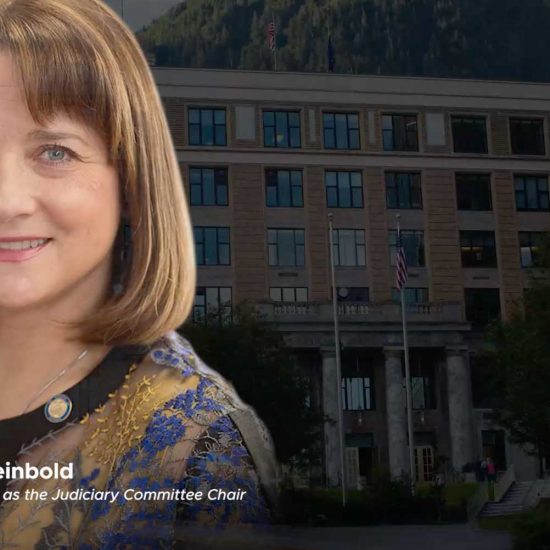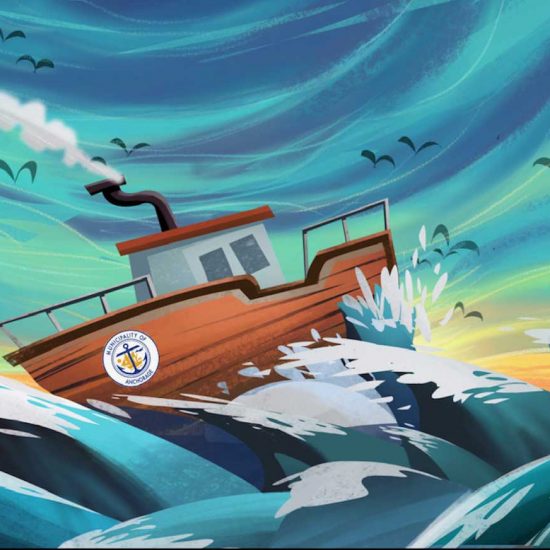When it comes to farming, “Alaska Grown” produce, and supporting the agriculture businesses of Alaska that afford us farm-fresh sustenance, I’m 100% loyal to the cause. I’m a farmer, and proud of it.
Most Alaskan legislators are open-minded. Champions of farming like Congressman Don Young, Rep. Bill Stoltze and former Senator Jay Kertulla come to mind. I’m pleased with the visionaries who support the hard work of farming communities scattered throughout the state.
Let me also disclose that I’ve been working with policymakers at the federal, state, borough and city levels as a president and member on state and the local farm bureaus, and in other capacities – including a federal appointment. I understand the legislative process, and when we’re so blessed, appreciate the transparency.
But in all my days in Alaska working in the produce industry, as a farmer and as an owner of a farmer’s market, I’ve never come across such an overt attempt by an elected official to push a private, collusive agenda so destructive to our way of life.
This bill introduced and advocated for by Republican State Representative Eric Feige of Sutton is NOT for farming, and the lack of ethics and inclusion in the legislative process is discouraging.
House Bill 207 was Feige and pals’ idea. It’s a bill that only one soil and water district out of twelve in Alaska even wanted. Why? Because Salcha-Delta’s district is managed by Bryce Wrigley who is a paid employee and helped craft the language. Wrigley is also the Alaska State Farm Bureau president. In the same region, the Delta Farm Bureau president is Mike Paschall, who conveniently happens to be Rep. Feige’s legislative aide.
This failed legislation’s genesis is borne from selfishness and ignorance, and Rep. Feige and team were unwilling to legitimately consider why during legislative deliberations.
HB 207 would have affected two different agriculture organizations: the Board of Agriculture (BAC) and the NRCDB (Natural Resources Conservation Development Board). This bill dissolved both the BAC and NRCDB and replaced them with one single, larger board: BACD. Currently the BAC and the NRCDB boards are run on an all-volunteer basis and there is minimal-to-no cost to the State for operation. If the proposed legislation would have been enacted, the new BACD board would be filled by appointees of the governor along with three highly paid state employees being added as ex-officio members of the new BOD.
The problem is that the two separate boards have completely different missions and purposes. The BAC, among several roles, oversees the Alaska Revolving Loan Fund – created to specifically assist farming operations in Alaska. The AACD board oversees the local soil and water conservation districts statewide. If passed, Feige’s bill would have lead to the complete dismantling of the local soil and water conservation districts. What a horrific loss, should that have come to fruition. Recall these districts were created by the Alaska Territorial Legislature in 1947 to assist and represent the land owners and managers that provide from/with the natural resources of the state. This includes agriculture, forestry, mariculture, and all other forms of renewable natural resources. The districts are critical for many reasons to Alaska’s well-being.
Since the legislation died in process, the purpose of my editorial is to remind voters that they have a choice. Rep. Feige lost my vote, and that of many others’ in agriculture and farming, when he closed the door to the discussion. He didn’t extend the courtesy and respect to meet with the various Mat-Su farm organizations and their representatives.
Despite Feige’s purporting to be a fiscal conservative, HB 207 would not have made government smaller, less expensive or more efficient. It was poorly thought and harmful to the agriculture industry in Alaska, despite benefiting a few of the Representative’s friends.
Like rotten vegetables, this should stink to everyone!
I recall in the process, after adamant opposition from the Conservation districts over the combining of two boards, that there was yet another rewrite to the bill. NRCDB board language was deleted from the bill. The revised version went before House Resources Committee and was vehemently rejected in public testimony by everyone that testified on conference call. At the very end of the meeting however, after the public comment period was concluded, Rep. Feige promoted and moved amendments that had absolutely nothing to do with the original context of the bill. The changes involved the Mat-Su slaughter facility, and how it would be effectively shut down June 30th 2014 because it has been running in the red, and the ARLF is supporting the loss financially.
Alaska butchers and meat processors are the victims of Feige’s short-sighted decision to close the slaughterhouse and these revisions were strategically added after the Resource Committee public hearing in the House Finance Committee, so no one could speak against it. They should be equally infuriated at Feige. And don’t forget the Mat-Su inmates who learned a valuable trade and became assets to our society, not recidivists, because of training and workforce development programs embracing rehabilitation at the facility. Those Alaskans and their families would have been out of luck too if the legislation had passed.
Based on the entire process and his actions, or lack thereof, it would appear Rep. Eric Feige has turned his back on Mat-Su farmers and Alaska’s conservation districts statewide.
Arthur Keyes owns Glacier Valley Farm in Palmer and is the founder of the South Anchorage Farmer’s Market. He was a produce manager for Safeway in Anchorage and has worked in produce all of his adult life. He’s currently on the Board of Directors for the Palmer Soil & Water Conservation District, and is the past president of the Mat-Su Farm Bureau, past director on the Alaska State Farm Bureau, and currently serves on Mat-Su’s Board of Directors.












Annette / May 4, 2014
Wow ! thanks for the eyes opener.
/
Don Quarberg / June 22, 2014
I wonder why I didn’t see this in the “Delta Wind” (Delta Junction paper) – oh yea, because the Delta Wind is owned by Mike Paschall and he happens to be the owner of the paper. Go Figure.
Feige/Paschall just had a B-B-Q (fund raiser?) in Delta at Gary Hall’s home. I just happened to erect a George Rauscher campaign sign in a private fence near the Hall’s residence at 1:00 PM. By 11:15 this evening when I went to retrieve the sign — it was missing! Go Figure. Kind of shows just how “low-lifed” the Feige/Paschall campaign team really is.
Go Geaorge!
/
Don Quarberg / June 25, 2014
I owe the Feige Campaign an apology – they did not remove the sign, as I just learned who did. Sorry for jumping to conclusions.
/